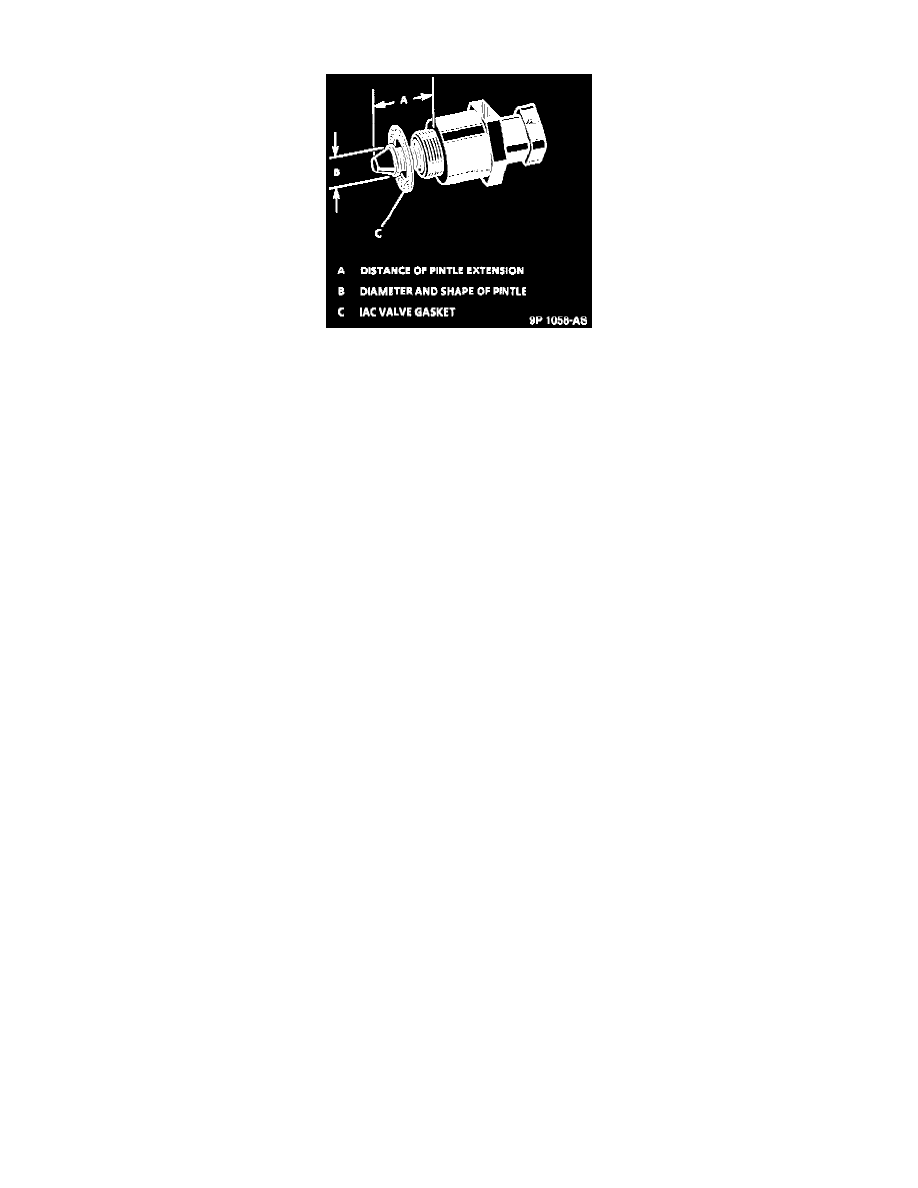K 2500 Truck 4WD V6-262 4.3L VIN Z TBI (1995)

Idle Speed/Throttle Actuator - Electronic: Description and Operation
IAC Valve
OPERATION:
All engine idle speeds are controlled by the control module through the Idle Air Control (IAC) valve mounted on the throttle body. The control
module sends voltage pulses to the IAC motor windings causing the IAC motor shaft and pintle to move in and out a given distance (number of
steps) for each pulse, (called counts).
This movement controls airflow around the throttle plate, which in turn controls engine idle speed, either cold or hot. IAC pintle position counts
can be seen using a "Scan" tool. 0 counts correspond to a fully closed passage, while 140 counts or more (depending on application) corresponds
to full airflow through the throttle body bypassing the throttle blade.
^
Actual or "controlled" idle speed is obtained by the control module positioning the IAC valve pintle. Resulting idle speed is generated from the
total idle air flow (IAC/passage + PCV + throttle valve + vacuum leaks).
^
Controlled idle speed is always specified for normal operating conditions. Normal operating condition is engine coolant temperature in
operating range, the A/C is "OFF," manual transmission is in neutral or automatic transmission in drive with proper park/neutral position. A
high or low engine coolant temperature, or A/C clutch engagement may signal the control module to change the IAC counts.
^
The minium idle speed is set at the factory with a stop screw. This setting allows enough air flow by the throttle valves to cause the IAC valve
pintle to be positioned a calibrated number of steps (counts) from the seat during normal controlled idle operation.
^
The IAC counts will be higher than normal on an engine with less than 500 miles, or an engine operating at high altitude or an engine with an
accessory load such as the alternator, A/C, power steering or hydra-boost brakes activated.
